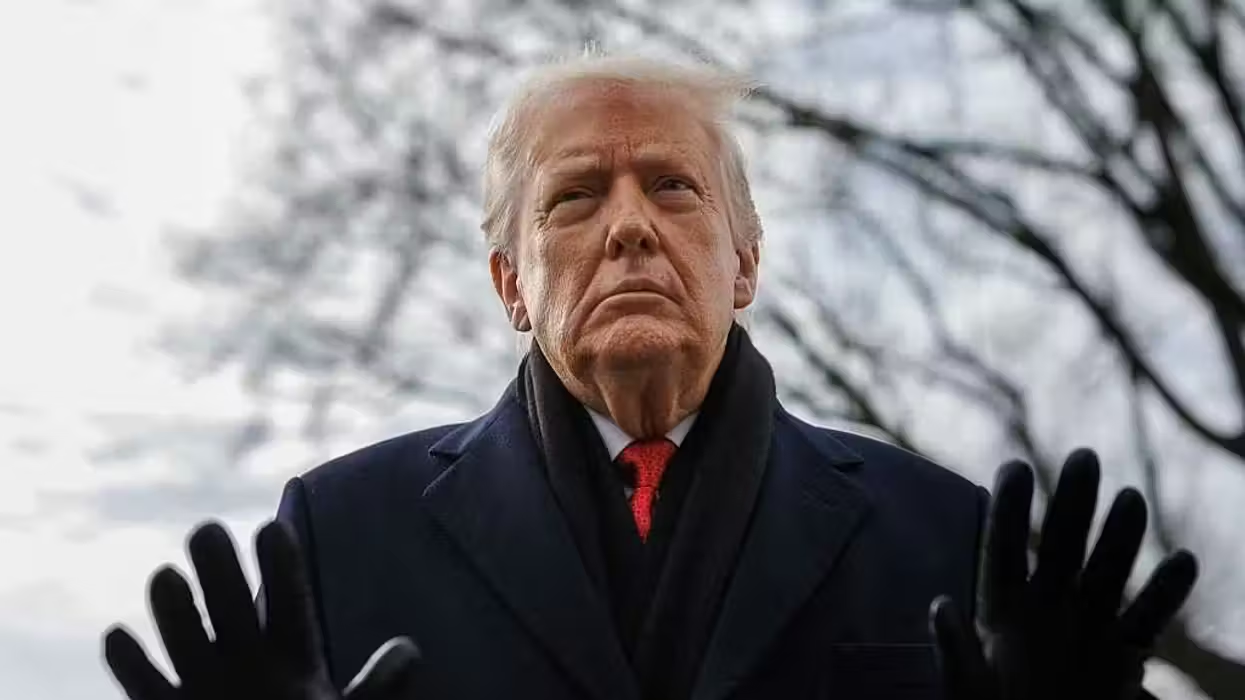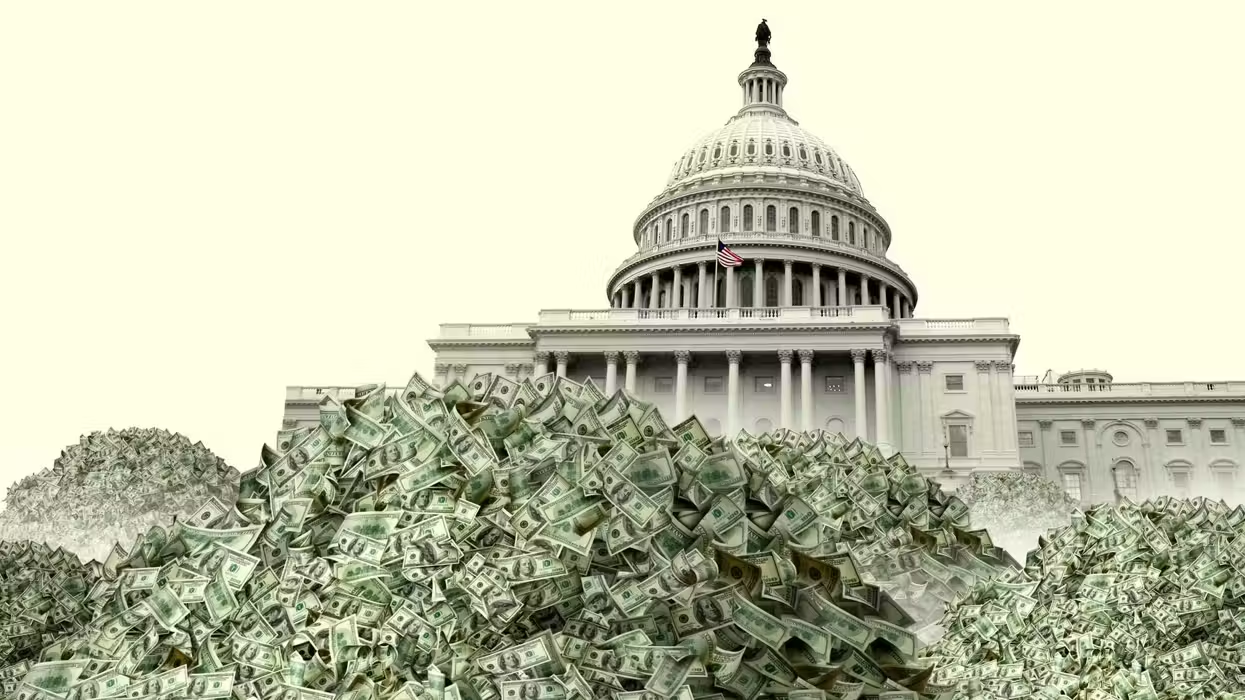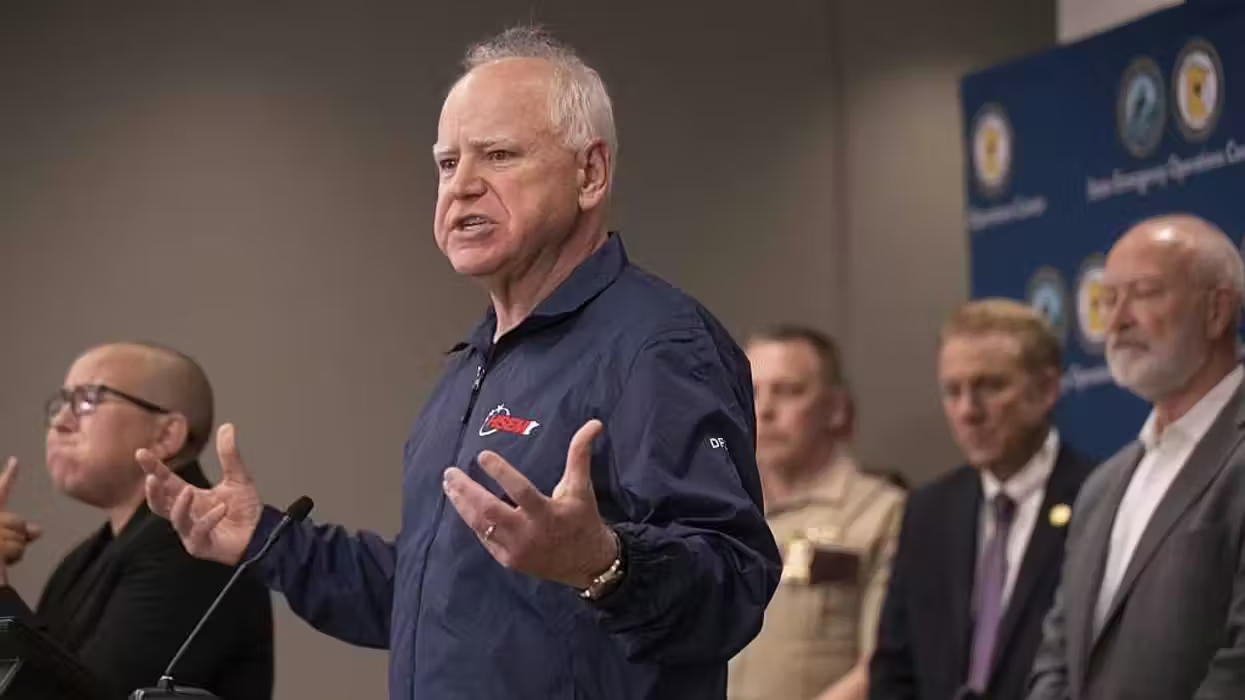
© 2026 Blaze Media LLC. All rights reserved.
Romney's Possible Cabinet Part I: Agriculture, Housing and Urban Development, and Veterans' Affairs
August 29, 2012
The "exciting choices," the "safe choices," and the "wild cards."
Stay up-to-date on all the convention news by visiting TheBlaze’s dedicated RNC page. Also find out how you can watch exclusive, live reports and analysis on TheBlaze TV. Get both here.
--
This is part one of a series on Mitt Romney's potential cabinet appointments.
In the event that Mitt Romney is elected to the oval office, he will face some of the most consequential and difficult choices any president has faced in the modern era. Probably the first of those choices will be the selection of a cabinet. And while it's highly unlikely that Romney, who still has to chart a course to victory, has started making up serious lists for these positions, his advisers are almost certainly thinking about it. As such, we wanted to start taking a look at potential people that Romney might choose, in the event that he's elected. Therefore, this article will be the first in a series of articles examining the various people Romney could choose to replace President Barack Obama's current cabinet.
For this first article, we take a look at the most apolitical of Romney's potential cabinet appointments - that is, appointments that received unanimous support from the United States Senate when President Obama made his choices. Three cabinet positions stick out in this respect - namely, the Secretaries of Agriculture, Housing and Urban Development (HUD) and Veterans' Affairs (VA). In selecting candidates, we narrowed the choices down to three people, one of which would be the "safe choice," one of which would be the "exciting choice," and one of which would be a "wild card."
So without further ado, here are some likely candidates for those roles.
Secretary of Agriculture
The safe choice: Senator Mike Johanns of Nebraska
Why? He's the co-chair of Romney's Agriculture Advisory Committee, and has already done the job once under George W. Bush. He knows his way around the Agriculture Department, and has had three years in the Senate to build connections, making him an easy confirmation.
Why not? There's no guarantee Johanns would take the job again. And even if he would, Romney might not want to put any Bush appointees in his cabinet, given the former president's acrimonious reputation even among Republicans. Moreover, even if Romney were willing to take that risk, appointing Johanns could lead to messy political theater, and provide the Democrats with their first talking point "proving" that Romney is really just bent on going back to the "failed policies" of the past.
The exciting choice: Florida Agriculture Commissioner Adam Putnam
Why? Romney clearly trusts Putnam, so much so that he's also a co-chair of Romney's Agriculture Advisory Committee, alongside Johanns. However, unlike Johanns, he'd bring some new blood to the table, and would be a pick consistent with Romney's choice of Paul Ryan as his running mate. Putnam also has Congressional experience, meaning that he could easily interface with Republicans in Congress.
Why not? No private sector experience, and Romney could be hesitant to elevate someone from being agriculture commissioner for a single state (albeit a populous one) to being agriculture commissioner for the entire country.
The Wild Card: Chuck Conner, President and CEO of the National Council of Farmer Cooperatives.
Why? He's a former deputy decretary of agriculture. He's a CEO. He's on Romney's Agriculture Advisory Committee. He's a former farmer himself. That covers pretty much the entire checklist.
Why not? Despite his impressive jack-of-all trades status, he's not a co-chair of Romney's Agriculture Advisory Committee, and doesn't appear to be viewed as a leading figure in thinking about the topic among Romney's surrogates. He has the most recent relevant experience, but he's not the only CEO with Agriculture Department experience Romney could pick, and it's difficult to see what makes him unique. Respect as a leader from the president is key, and we don't see much evidence that Conner is seen this way anymore than any other agriculture adviser Romney has.
Secretary of Housing and Urban Development
The safe choice: Senator Richard Shelby, Ranking Member, Senate Committee on Banking, Housing and Urban Affairs
Why? Shelby has been following these issues as a Senator since 1986. He also is unlikely to want to run for Senate again, since he next comes up for reelection in 2016, by which time he would be in his 80's. Picking him gives the Alabama GOP time to put in place a younger incumbent, and provides a good capstone to Shelby's lengthy career in public service.
Why not? Besides it being unclear that he'd take the job, Shelby is viewed by many as a moderate Republican, and may also be considered too old for a cabinet position. If the GOP takes the Senate, he may also want the Committee Chairmanship more than the Cabinet.
The exciting choice: Rick Baker, former Mayor of St. Petersburg, Florida
Why? Baker is already Romney's key Urban policy adviser, according to Forbes. He's also written a book describing a form of "conservative urban revitalization that can work anywhere." He'd be a strong ideological choice, but would also be able to get some support from urban Democrats, given his ideas about investing heavily in downtown areas.
Why not? Going from being mayor of a city to being national Secretary of Housing and Urban Development will involve a steep learning curve. His conservative ideology could also provoke barbs during the confirmation process.
The Wild Card: Not picking a Secretary
Why? Because Romney has floated the idea of abolishing the Department of Housing and Urban Development as a budget-cutting measure. It would send an early signal that he really isn't afraid to cut fat, and would inspire confidence among the ideological core of his own party.
Why not? Abolishing HUD would be a nasty political fight early in Romney's term, especially given that Romney's father used to run the Department. Democrats would fight tooth and nail, and Romney might calculate that the battle would drain too much political capital.
Secretary of Veterans' Affairs
The safe choice: North Carolina Senator Richard Burr.
Why? Burr is the ranking member of the Senate Committee on Veterans' Affairs. He's been surveying this issue since 2005, and presumably knows a ton on the issue. He also has four years left on his term, which would be more than enough time for a replacement to make a name for him/herself and gain the advantages of incumbency, in a state that has been drifting Republican this year. He has little private sector experience, but knows the relevant actors, and for Romney, that might be all that matters.
Why Not? Burr's lack of any identifiable diversity and lack of private sector experience could make him look too much like a go-along-to-get-along nominee for an administration that may need to make drastic choices about Veterans' care, and like a step back in terms of racial diversity relative to the current Veterans' Affairs Secretary, Eric Shinseki.
The Exciting Choice: Josue Robles, CEO of USAA
Why? Robles has it all. A Republican Latino with private sector experience in the insurance industry and 28 years of Army experience. He's both a veteran and the kind of Mr. Fix-it that Romney would probably love to have at VA, especially if Romney plans to overhaul the broken Veterans' health system.
Why not? To begin with, it's dubious that Robles would want to leave USAA for this post. Also, while he may be a Republican, Romney might not look kindly on his support for Romney's erstwhile rival, Texas Governor Rick Perry.
The Wild Card: Eric Shinseki, Secretary of Veterans' Affairs
Why? Even President Obama didn't toss out his predecessor's entire cabinet. Shinseki was confirmed unanimously, and has escaped the kind of politicization that many other appointees have received, and could be an easy, low-cost choice that enables Romney to retain the image of being bipartisan.
Why not? He's an Obama appointee, and depending on how aggressively Romney wants to overhaul the VA system, Shinseki could be a roadblock to Romney's agenda.
So there's the first round of people Romney could pick. Stay tuned for more potential choices in the upper-level cabinet positions.
Next time: Who Romney could pick to lead the Departments of Commerce, Interior and Transportation.
Want to leave a tip?
We answer to you. Help keep our content free of advertisers and big tech censorship by leaving a tip today.
Want to join the conversation?
Already a subscriber?
more stories
Sign up for the Blaze newsletter
By signing up, you agree to our Privacy Policy and Terms of Use, and agree to receive content that may sometimes include advertisements. You may opt out at any time.
Related Content
© 2026 Blaze Media LLC. All rights reserved.
Get the stories that matter most delivered directly to your inbox.
By signing up, you agree to our Privacy Policy and Terms of Use, and agree to receive content that may sometimes include advertisements. You may opt out at any time.







